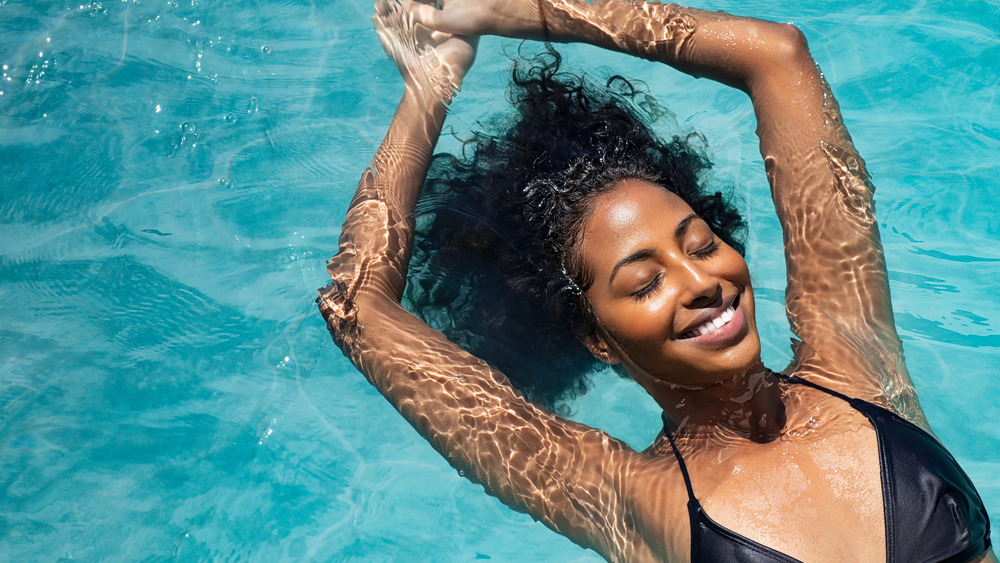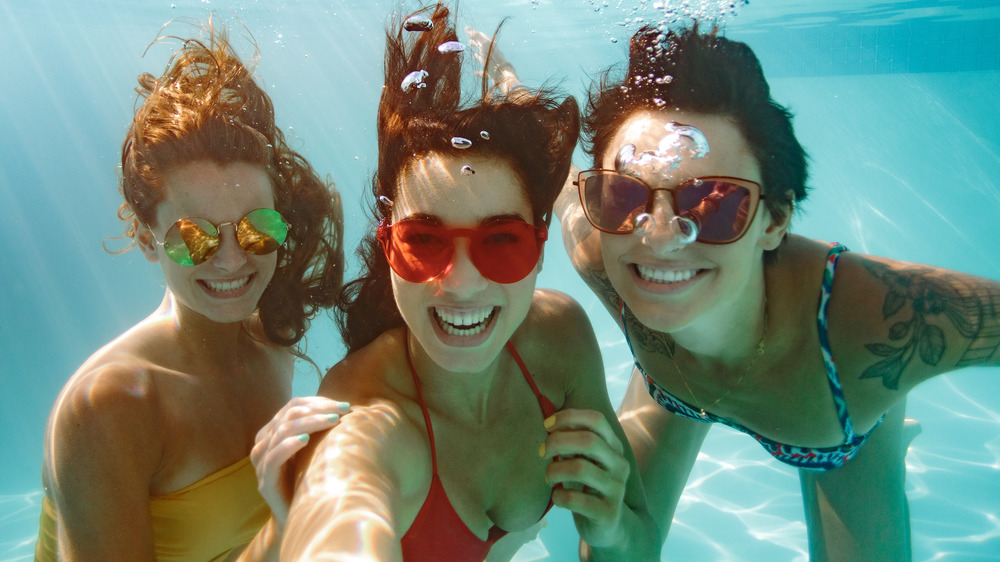Does Your Period Really Stop In Water?
The weather is finally warming up after a long winter season and you're ready to shed the sweaters and head to the beach. When going over your beach bag checklist, you've remembered to pack the essentials: sunblock, towel, sunglasses... tampons? Of the many rumors you may have heard over the years when it comes to menstruation, you've probably heard the common, "your period stops in water" myth. Though the lightweight feeling you experience while in the water can make it feel as if your period has come to a halt, the reason for that feeling has less to do with our bodies, and more to do with water pressure.
Growing up, you and your friends probably enjoyed that super-strength feeling of being able to effortlessly lift one another up while in the pool. That lightweight feeling is due to the effects of the surrounding water pressure. The upward force that a liquid exudes on our bodies is what's responsible for our ability to float when we stretch out on our backs. For that same reason, water pressure acts at odds with the natural pull of gravity on our bodies (via Women's Health).
Water pressure reduces the rate of flow
With gravity aiding the outward flow of menstrual blood, water pressure reduces that rate of flow (via Women's Health). Dr. Jacqueline Ho, M.D., reproductive endocrinology and infertility expert at Keck Medicine of USC, confirms this, telling Insider, "Blood typically flows out from the uterus into the vagina through the cervix because of gravity, and the water pressure can decrease the flow while swimming." So while the blood flow from your period is no longer flowing at the same rate, it doesn't actually come to a full stop.
If you're worried about potential leakage, there are many safe and comfortable options for protection. Long gone are the rumors that you have to stay up on the sand during your period! Some options best suited for swimming include tampons, menstrual cups, and menstrual disks (via Healthline). The perks of these three options is that they can all be inserted, and therefore concealed, if you're worried about the risk of a runaway pad. Whichever option you feel most comfortable with, just be sure to maintain healthy hygiene with hand-washing and regularly changing out your period products. With protection in place, the risk of leakage is minimal and the next time you find yourself on your period at the beach, you can step out for a swim feeling confident and prepared.


